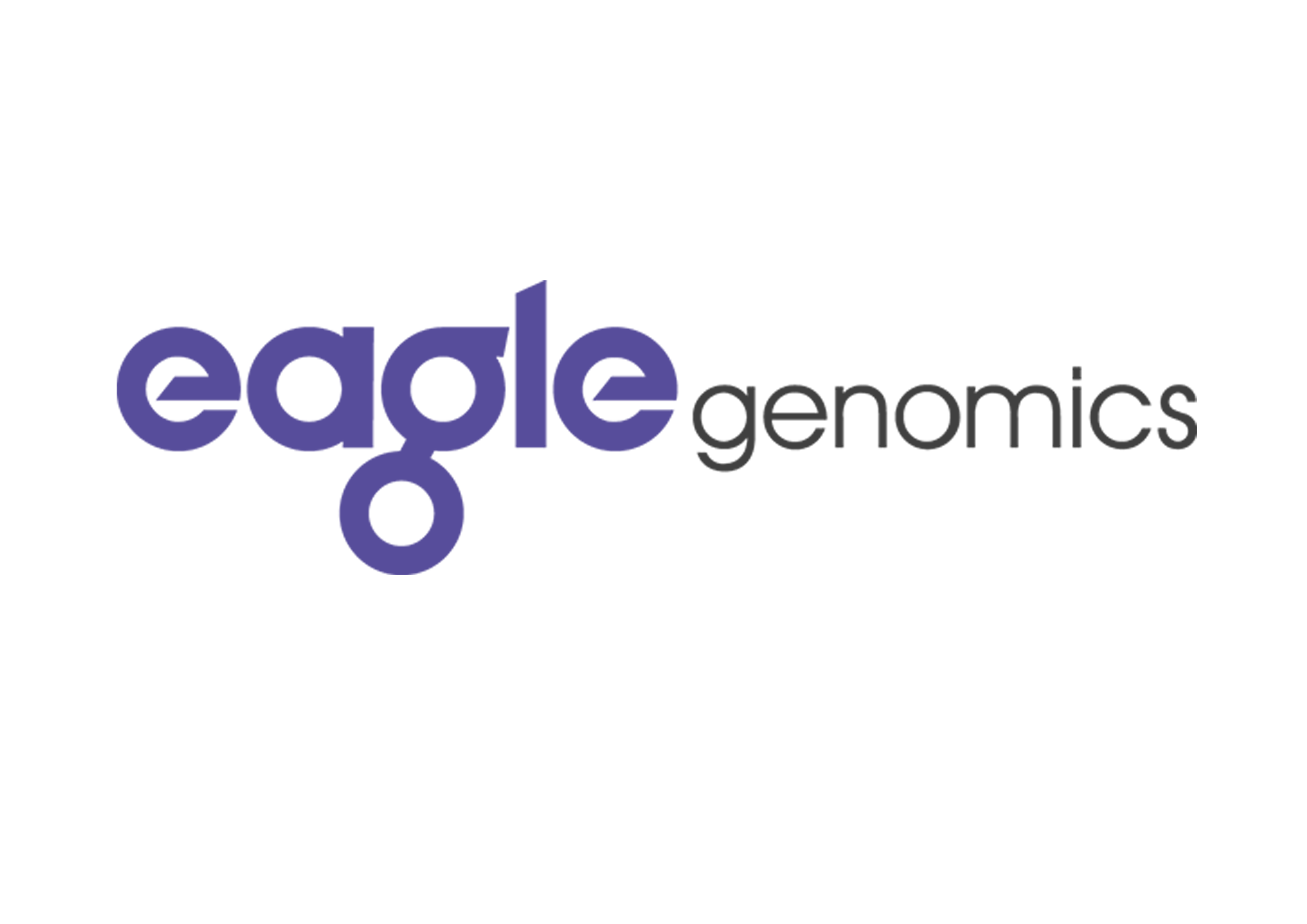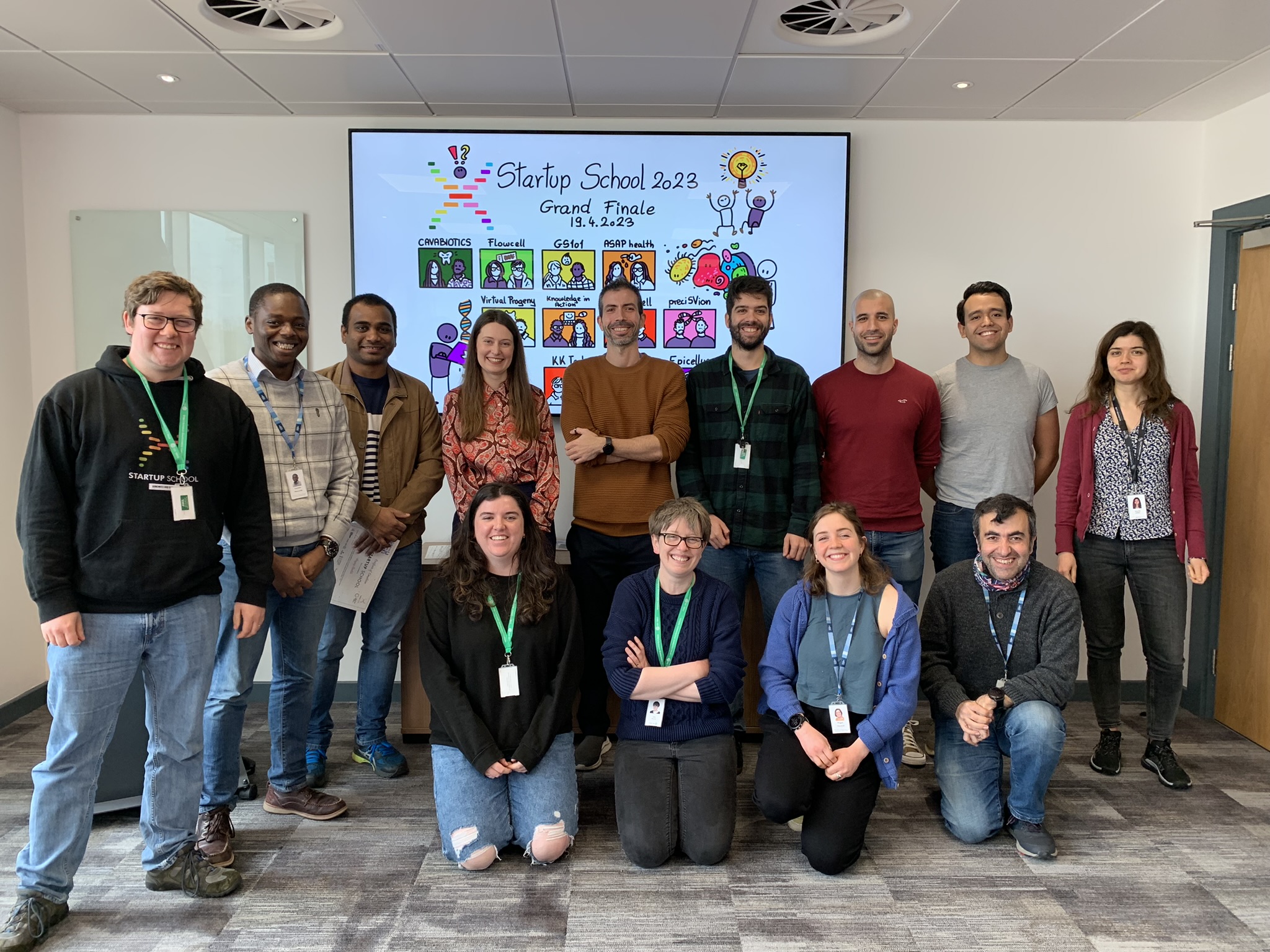Lab to Leadership

Amidst the haze of the hottest June day recorded in the UK since 1841, all at the Wellcome Genome Campus settled down in a mercifully air-conditioned lecture theatre to listen to three bioinformatics entrepreneurs share their stories with an audience composed mainly of early career scientists working at the Sanger Institute and EMBL-EBI. This panel discussion was part of a series of talks called Bench to Boardroom, initiated by the BioData Innovation Centre (BIC) here on Campus to help inspire, encourage and nurture scientific entrepreneurship- particularly in the genomes and biodata space.
Panel members were Misha Kapushesky CEO of Genestack, Fiona Nielsen CEO of Repositive and Abel Ureta-Vidal CEO of Eagle Genomics, whose office is in the BIC here on Campus (Left to right as pictured).
The most striking thing about all three, was how down-to-earth and disarmingly honest they were about the fact that their paths to becoming business leaders were paved with lucky breaks, chance discoveries, mistakes and of course plenty of elbow grease. All three highlighted different personal motivations that took them on their journeys from lab to boardroom, and all were charming, inquisitive and up-beat. So what makes a successful entrepreneur? Is there a certain personality type that is better suited to becoming a business leader? In answer to these questions, a brief story from each of our panellists…
Misha Kapushesky was born in Russia and, at the age of 12, discovered his entrepreneurial instincts, assembling Lomo camera kits in Saint Petersburg. This brief foray into entrepreneurship ended when he moved with his family to America, by which time he had only managed to sell one camera! Once in the US and preparing for a double-major in mathematics and comparative literature at Cornell, he found a lab at Harvard that ‘was doing cool experiments’ so he volunteered to do a summer job there just to learn and try things out in his own time. The contacts he made at Harvard, resulted in an invitation to spend a year at Oxford University and the rapid expansion of the Dot Com Bubble at that time afforded Misha a number of opportunities to work with start-ups in Boston USA. He eventually took a job offer from EMBL-EBI based here on Campus where he worked on data services and research in functional genomics, completing a PhD in statistical genetics at Cambridge, and it was this work that inspired him to strike out on his own to build a universal collaborative platform for biological data management and analysis that is Genestack.
“Being a CEO it’s all about making decisions when you don’t have enough information. No one really knows how to do things properly, you get very different advice from people and ultimately you will have to make your own decisions.”
– Misha Kapushesky
Fiona Nielsen is a Dane who started out studying computer science. She took this course as it offered the shortest degree that she could do before going straight out to work. Pretty quickly she says, she found that making websites became monotonous and so she decided to embark on a PhD in bioinformatics in the Netherlands. It was around the same time that her mum was diagnosed with cancer. During her mum’s illness Fiona paid close attention to the treatment her mum received, and was struck by the lack of more precise medical treatments on offer like those that use a person’s genetic and molecular profiling to optimise treatment efficiency. Soon afterwards, admitting that she lost interest in her PhD studies, she took a job with Illumina Cambridge in the bioinformatics group where she hoped to work on new personalised approaches to medicine. It was through her work there that she realised researchers needed better and quicker access to vast swathes of data that was available to power their work. Leaving her job with Illumina in 2013 she founded the charity DNAdigest to address this problem directly, and in August 2014, she spun-out her current company Repositive from this charity.
Question from the audience: When did your company make its first sale?
“We started differently to Abel’s company- not as consultancy but as a product company and had a lot of R&D to do and discussions. We made our first product sale after 3 years of operations”.
– Fiona Nielsen
Abel Ureta-Vidal is a biologist by training and a self-professed ‘geek in the lab’. He started by saying that he is ready to support and advise anyone in the audience wishing to transfer from doing a PhD to running their own company. He said that despite being a scientist, he was always interested in working in an industry environment and was always on a look-out for such opportunities. He wanted to leave academia to join industry but got offered a position at EMBL-EBI where he worked for 6 years before he decided to do an MBA with the Cambridge Judge Business School. Through the contacts at the Judge, he secured a one-off piece of consultancy work as a freelancer and around that time someone suggested that he should set up a company providing consultancy in opportunities in translational genomics enabled by next generation sequencing and cloud computing. This was in 2008 and in 2013, Eagle Genomics decided to pivot on their original business plan, for this they needed money- they needed angel investment. It is now 9 years since Eagle Genomics was founded and they are growing, also chasing customers and still thinking about raising money and looking for new opportunities says Abel. Last summer the company decided to locate their offices to the BIC here on Campus- a move that Abel believes adds significant value to his growing company.
“This Campus is a really great place. In a place like this, where you are co-located with the science that underpins our work, serendipity happens much faster.”
– Abel Ureta-Vidal
Of course, entrepreneurship is not just something that a person is born to be able to do; success has a complicated recipe. However, all three of our panelists have a few traits in common- they are inquisitive, intelligent and extremely hard-working. All of them took on risk in starting their companies, all of them still shoulder uncertainty as they continue to grow their companies and plan for the future. We look forward to celebrating your achievements in years to come- Genestack, Repositive and Eagle Genomics.
If you would like to attend a Bench to Boardroom talk (Autumn 2017 series) email Vika Lebedeva-Baxter for an invitation and for more details.


